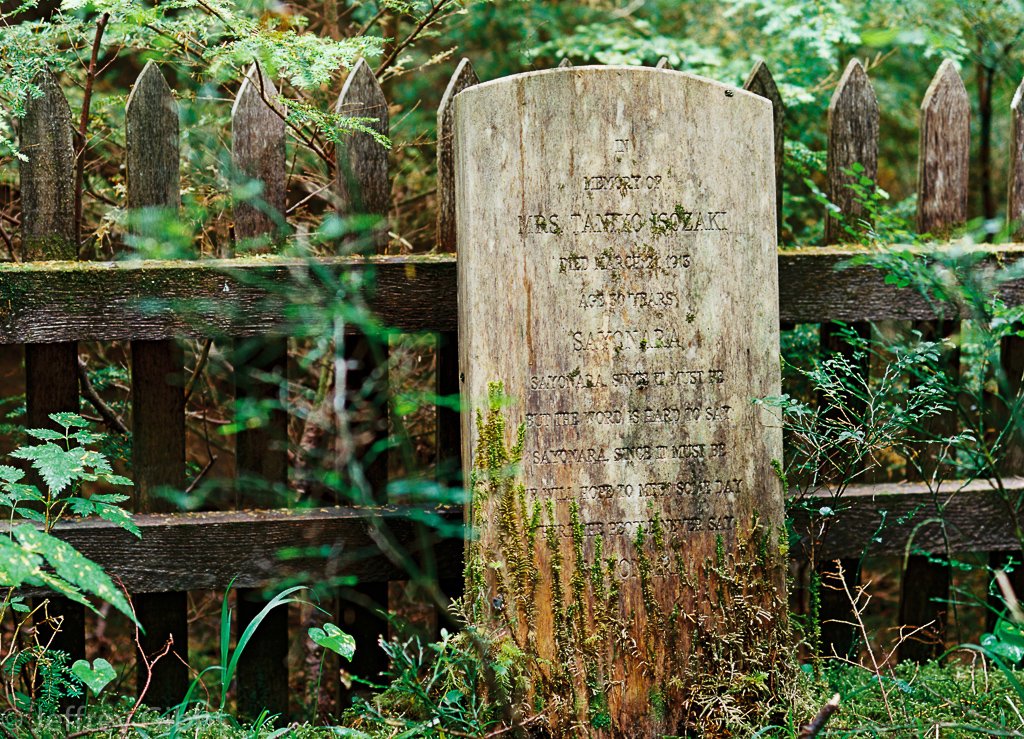In a far-flung corner of Gwaii Haanas there is a small bay that from a distance doesn’t seem particularly special. This past summer I made a sort of pilgrimage there…to see a gravestone. For centuries there was a Haida village in that bay known as Chief Ucah’s village. Then from 1910-13 there was an abalone packing operation that only employed Japanese workers. As it was remote, the workers lived on site. A young Japanese woman named Mrs. Taniyo Isozaki died there in 1913 at the age of 30. The cause of her death is unknown. In the century since, the forest has reclaimed most traces of the past human presence there. However, above the shoreline, hidden back in the forest, is Taniyo Isozaki’s gravesite. If I didn’t have very specific directions I would never have found it. After traversing a jungle of mossy trees I saw a wooden picket fence surrounding the gravestone. The gravestone inscription includes the following poem:
“SAYONARA
Sayonara since it must be
But the word is hard to say
Sayonara since it must be
We will hope to meet some day
Where their people never say
SAYONARA”
I first read about Taniyo Isozaki and this poem years ago. I have wondered who she was, how she lived, how she died, and whom she left behind? I have always been touched by the poem. I think it expresses a universal sentiment for lost loved ones.
The Haida often make offerings of tobacco for their Ancestors. I had a bag of this special tobacco with me and I left some at Taniyo’s gravesite and wished for peace for her and for everyone who has suffered the lost of a loved one who died young.

